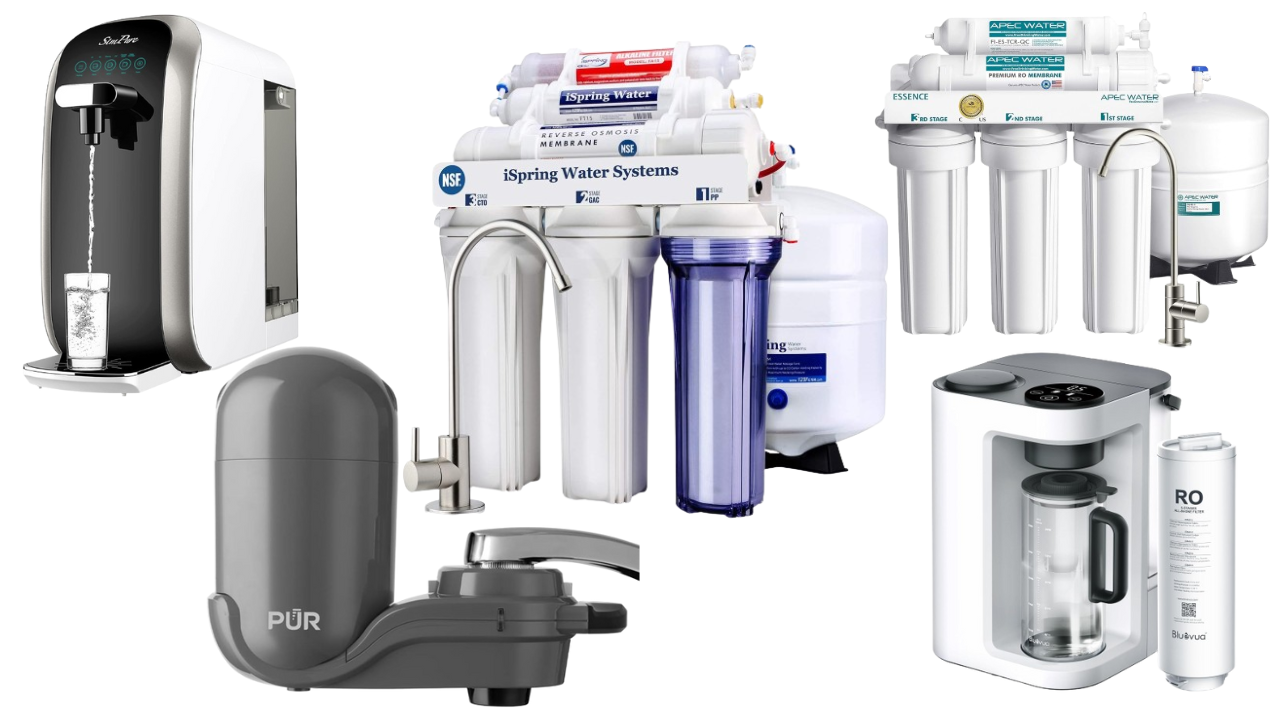A water filter for sink is a crucial component in ensuring access to clean and safe drinking water. Designed to remove impurities, contaminants, and particles from water, these systems play a pivotal role in enhancing water quality for domestic, industrial, and commercial purposes. Employing various filtration technologies such as activated carbon, reverse osmosis, and UV sterilization, these systems effectively eliminate pollutants like sediment, chlorine, bacteria, viruses, and heavy metals.
Water filter for sink come in diverse configurations, ranging from countertop pitchers and faucet-mounted units to whole-house filtration systems. Their versatility allows users to tailor solutions to specific needs, addressing varying water quality issues and preferences. Additionally, the use of advanced filtration media and smart technologies has enabled some systems to provide real-time monitoring and automatic adjustment, optimizing performance and efficiency.
Beyond improving taste and odor, water filter for sink systems contribute to public health by reducing the risk of waterborne diseases. They also extend the lifespan of appliances by preventing the accumulation of scale and mineral deposits. As global concerns about water quality and scarcity grow, investing in a reliable water filter for sink becomes essential for promoting health, sustainability, and environmental responsibility.
Table of Contents
Water Filter
A water filter is a device designed to improve the quality of water by removing impurities and contaminants, ensuring a safe and clean water supply for various purposes. These filters utilize diverse technologies such as activated carbon, ceramic, sediment, and membrane filtration to capture and eliminate particles, chemicals, bacteria, and other unwanted substances.
Available in various forms, water filters can be installed at different points of use, including faucets, pitchers, and whole-house systems. The choice of a specific filter depends on the intended application and the type of contaminants present in the water source. Common contaminants addressed by water filters include chlorine, heavy metals, pesticides, and microorganisms.
Water filters not only enhance the taste and odor of water but also contribute to overall health by reducing the risk of waterborne diseases. Additionally, they play a crucial role in preventing the accumulation of scale and sediment in plumbing fixtures and appliances, thus extending their lifespan.
With growing concerns about water quality and environmental impact, the use of water filters has become increasingly prevalent, offering a practical solution to ensure access to clean and safe drinking water in households, businesses, and communities worldwide.
Our Picks: Best Water Filter for Sink
1
Apec Water Systems Roes-50 Essence Series
The APEC Water Systems ROES-50 Essence Series is a top-tier, 5-stage reverse osmosis (RO) drinking water filter for sink system that has earned certification from the Water Quality Association (WQA). This advanced water filtration system employs a multi-stage process to deliver ultra-safe and high-quality drinking water.
The 5-stage filtration includes sediment and pre-carbon block filters, followed by the heart of the system: a reverse osmosis membrane that effectively removes contaminants like arsenic, lead, fluoride, bacteria, viruses, and more. The system also features a post-carbon filter to enhance the water’s taste and eliminate any residual odors.
WQA certification ensures that the ROES-50 meets stringent industry standards for performance and safety. This system is designed for easy DIY installation and includes all the necessary components, such as a lead-free faucet and tubing.
Key benefits of the ROES-50 include improved water taste, odor, and clarity, along with the removal of a wide range of contaminants. Its efficient and thorough filtration process makes it a reliable choice for households seeking a dependable solution for clean and safe drinking water. The APEC Water Systems ROES-50 Essence Series exemplifies the commitment to water quality and consumer satisfaction in the realm of residential water filtration systems.
2
Bluevua RO100ROPOT-LITE Water Filter System
The Bluevua RO100ROPOT-LITE is a countertop reverse osmosis (RO) water filter for sink system, offering a convenient and portable solution for high-quality water purification. With a 5-stage purification process, this system is designed to provide efficient removal of contaminants, ensuring clean and safe drinking water.
Key features of the Bluevua RO100ROPOT-LITE include its compact design that sits conveniently on countertops, eliminating the need for installation. The 5-stage filtration process involves sediment and pre-carbon filters, followed by a high-performance RO membrane, and concluding with post-carbon and mineralization stages. This comprehensive process effectively removes impurities such as sediment, chlorine, heavy metals, and other contaminants.
A notable aspect is the system’s efficiency, with a 3:1 pure-to-drain ratio. This means that for every three units of purified water produced, only one unit is wasted, making it a relatively eco-friendly option compared to traditional RO systems. The portable nature of this water purifier caters to those seeking flexibility and ease of use without the complexities of permanent installations.
The Bluevua RO100ROPOT-LITE is an appealing choice for individuals or households looking for a countertop reverse osmosis system that combines effective water purification with user-friendly features, portability, and minimal environmental impact.
3
iSpring RCC7AK Water Filter System
The iSpring RCC7AK is a notable reverse osmosis (RO) water filter for sink system designed for under-sink installation, delivering high-quality drinking water with a focus on taste enhancement and alkalinity. Certified by the National Sanitation Foundation (NSF) for performance and safety, this system is known for its 6-stage filtration process.
The 6 stages of filtration in the RCC7AK include a sediment filter, a granular activated carbon filter, a carbon block filter, the RO membrane, an alkaline remineralization filter, and a post-carbon filter. This comprehensive approach effectively removes sediment, chlorine, contaminants, and impurities, while the alkaline filter adds beneficial minerals back into the water, enhancing its pH and taste.
With a production capacity of 75 gallons per day (GPD), the RCC7AK ensures a steady supply of purified water for daily use. Its under-sink design saves counter space, and the installation is made easier with detailed instructions and color-coded tubing.
One of the standout features of this system is its commitment to not only purifying water but also improving its taste and nutritional content. Users can enjoy the benefits of alkaline water with enhanced pH levels, providing a refreshing and healthier drinking experience.
The iSpring RCC7AK is a reliable choice for households seeking a well-rounded RO water filter for sink system that not only purifies water but also adds essential minerals, resulting in superb-tasting and pH-balanced drinking water.
4
SimPure Y7P-BW UV Water Purification System
The SimPure Y7P-BW UV Countertop Reverse Osmosis Water Filtration System is a compact and user-friendly solution designed for efficient water purification without the need for installation. Boasting a 4-stage filtration process, it tackles contaminants through sediment and pre-carbon filters, a high-performance RO membrane, and a post-carbon filter. The inclusion of UV sterilization enhances its ability to eliminate bacteria, ensuring a thorough purification process.
This system doubles as a bottleless water dispenser, offering convenience while reducing reliance on bottled water. Notably, the 4:1 pure-to-drain ratio demonstrates water efficiency, with only one unit wasted for every four units of purified water produced. The BPA-free construction underscores a commitment to safety and health-conscious water consumption.
Ideal for countertop use, the SimPure Y7P-BW provides a hassle-free setup, making it suitable for those seeking a portable and easy-to-use water filtration system. Overall, its combination of efficient filtration, UV sterilization, bottleless dispensing, water conservation, and BPA-free construction makes the SimPure Y7P-BW a compelling choice for users prioritizing convenience, health, and environmental responsibility in their water purification needs.
5
PUR PLUS Faucet Mount Water Filtration System
The PUR PLUS Faucet Mount Water Filtration System (FM2500V) stands out as a powerful and convenient solution for elevating the quality of tap water directly from the faucet. With its 3-in-1 filtration system, this compact and vertically designed unit not only removes common contaminants but also reduces lead levels, ensuring a higher standard of water purity.
A distinctive feature of this system is its natural mineral filtration, which not only purifies water but also enhances its taste. The introduction of natural minerals contributes to a refreshing and enjoyable drinking experience, promoting both health and satisfaction.
Designed for ease of use, the FM2500V is simple to install without the need for tools, attaching directly to standard faucets. Its grey finish adds a modern aesthetic to the kitchen environment, complementing various styles.
The pur water filter offers a well-rounded solution, combining powerful filtration, lead reduction, natural mineral enhancement, and user-friendly design. Its space-efficient vertical build and stylish appearance make it an appealing choice for those seeking a convenient and effective water filtration system to enhance the taste and safety of their tap water.
Benefits of Water Filter System
Water filter for sink systems offer a multitude of benefits, contributing to improved health, convenience, and environmental sustainability:
Clean and Safe Drinking Water:
The primary purpose of water filter for sink systems is to remove impurities, contaminants, and potentially harmful substances from water, ensuring that the water you consume is clean, safe, and free from pollutants.
Improved Taste and Odor:
Filtration systems enhance the taste and odor of water by eliminating chlorine, sediment, and other compounds that can affect the overall quality and palatability of drinking water.
Health Benefits:
Removing contaminants like bacteria, viruses, lead, and other pollutants from water helps prevent waterborne diseases and protects overall health. Additionally, some systems, like those with remineralization features, add beneficial minerals to the water.
Appliance Longevity:
Water filter for sink systems can prevent the build-up of scale and sediment in appliances such as water heaters, coffee makers, and dishwashers, extending their lifespan and improving efficiency.
Environmental Impact:
By reducing the reliance on bottled water, water filter for sink systems contribute to environmental sustainability. They help decrease plastic waste, energy consumption associated with water bottling, and the carbon footprint of transportation.
Convenience:
Having a water filter for sink system at home provides a convenient and cost-effective alternative to purchasing bottled water. Users can access clean water directly from the tap without the need for constant trips to buy bottled water.
Customization:
Water filter for sink systems come in various types, allowing users to choose a solution tailored to their specific needs. Whether it’s a whole-house system, under-sink filter, or countertop unit, there are options for different preferences and water quality concerns.
Cost Savings:
While there is an initial investment in purchasing a water filter for sink system, it often proves cost-effective in the long run compared to the ongoing expenses of buying bottled water or dealing with the consequences of poor water quality on appliances and plumbing.
Preservation of Beneficial Minerals:
Some advanced filtration systems are designed to selectively remove harmful contaminants while retaining essential minerals that contribute to the nutritional value of water.
Water filter for sink systems offer a comprehensive range of benefits, promoting health, taste improvement, sustainability, and overall convenience in accessing clean and safe drinking water.
Considering Points of Water Filter System
When considering a water filter for sink system, several key points should be taken into account to ensure that the chosen system meets your specific needs and preferences. Here are important factors to consider:
Water Quality Testing:
Understand the quality of your water by conducting water tests or accessing local water quality reports. This information will guide you in choosing a filtration system that addresses specific contaminants present in your water.
Filtration Technology:
Different water filter for sink systems use various filtration technologies such as activated carbon, reverse osmosis, UV sterilization, and more. Select a system with filtration methods that effectively target the contaminants found in your water.
Contaminant Removal:
Identify the contaminants you want the system to remove. Common impurities include sediment, chlorine, lead, bacteria, viruses, and heavy metals. Choose a system that has the capacity to address the specific contaminants in your water.
Flow Rate and Capacity:
Consider the flow rate and capacity of the water filter for sink system. The flow rate should be sufficient for your household’s water usage, and the system’s capacity should meet your daily water consumption needs.
Installation and Maintenance:
Some systems may require professional installation, while others are designed for easy DIY setup. Understand the replacement schedule for filters and whether maintenance is user-friendly.
Certifications:
Certifications indicate that the system has been independently tested and meets specific performance and safety standards.
Water Waste Ratio:
For systems like reverse osmosis, consider the ratio of purified water produced to wastewater generated. More efficient systems have lower ratios, contributing to water conservation.
pH Balancing and Mineralization:
Some advanced systems offer features like pH balancing and mineralization, which can improve the taste and health benefits of the filtered water by reintroducing essential minerals.
System Size and Placement:
Consider the available space for installation. Water filter for sink systems come in various sizes and types, including under-sink, countertop, and whole-house systems.
Budget:
Evaluate your budget constraints. While the initial cost of a water filter for sink system is important, also factor in ongoing maintenance expenses and filter replacement costs.
By considering these points, you can make an informed decision and choose a zero water filter for sink system that aligns with your water quality concerns, lifestyle, and budget.
Care and Maintenance of Water Filter System
Proper care and maintenance are crucial to ensuring the effective and efficient performance of a water filter for sink system. Here are general guidelines to help you maintain your water filter for sink system:
Follow Manufacturer’s Instructions:
These instructions are specific to the model of your water filter for sink system.
Regular Filter Replacement:
Filters have a limited lifespan and need to be replaced according to the manufacturer’s recommended schedule. Regularly changing filters ensures optimal performance and prevents the buildup of contaminants.
Monitor Filter Life Indicators:
Some water filter for sink systems come with filter life indicators that signal when it’s time to replace the filters. Pay attention to these indicators and replace filters promptly.
Sanitize Components:
Periodically sanitize the components of your water filter for sink system. This may involve cleaning filter housings, tubing, and any removable parts.
Flush the System:
If the water filter for sink system has been unused for an extended period or if you’ve replaced the filters, flush the system according to the manufacturer’s recommendations. This helps remove any stagnant water and ensures the system is ready for use.
Inspect for Leaks:
Regularly check for any signs of leaks or drips in the system. Address any leaks promptly to prevent water damage and maintain the integrity of the filtration system.
Check Water Pressure: Monitor the water pressure to ensure it falls within the recommended range specified by the manufacturer. Abnormal pressure levels could affect the system’s performance.
Test Water Quality:
Periodically test the quality of the filtered water to ensure that the system is effectively removing contaminants. This can be particularly important if there are changes in the water source or if you notice any unusual taste or odor.
Protect Against Freezing:
If your water filter for sink system is located in an area prone to freezing temperatures, take measures to protect it from freezing. Frozen water can damage the system components.
Professional Maintenance:
Consider scheduling professional maintenance checks, especially for more complex systems or those integrated into the plumbing. Professionals can inspect and service the system to ensure its longevity and optimal performance.
By following these care and maintenance guidelines, you can extend the life of your water filter for sink system, maintain water quality, and enjoy reliable access to clean and safe drinking water. Always refer to the specific recommendations provided by the manufacturer for your particular system.
Conclusion
Water filter systems play a vital role in enhancing the quality and safety of our drinking water. As a crucial component of modern households, businesses, and communities, these systems offer a range of benefits that contribute to health, convenience, and environmental sustainability.
Water filter for sink systems are designed to effectively remove impurities, contaminants, and undesirable substances from water, ensuring that it meets or exceeds safety standards. The result is clean, safe, and great-tasting water that promotes overall well-being. From the removal of sediment, chlorine, and heavy metals to the elimination of bacteria and viruses, these systems provide a comprehensive solution to water quality concerns.
The versatility of water filter for sink systems is evident in the variety of configurations available, including countertop, under-sink, whole-house, and more. This adaptability allows users to choose a system that aligns with their specific needs, addressing water quality issues unique to their region or household.
Moreover, the care and maintenance of water filter for sink systems are critical for sustaining their performance over time. Regular filter replacements, proper sanitation, and adherence to manufacturer guidelines ensure the ongoing effectiveness of the system, providing reliable access to clean water.
As we continue to face global challenges related to water quality and scarcity, the adoption of water filter for sink systems becomes not just a convenience but a responsibility. By choosing these systems, individuals contribute to environmental conservation by reducing reliance on single-use plastic bottles and promoting water conservation through efficient filtration technologies.
In essence, water filter for sink systems stand as a cornerstone in the pursuit of clean and safe water, aligning with broader efforts to safeguard public health, preserve natural resources, and create a sustainable future.
FAQs
1. Why should I use a water filter system?
Water filter systems are designed to remove impurities, contaminants, and undesirable substances from tap water, ensuring that it is clean, safe, and free from pollutants. Using a water filter for sink system can improve the taste and odor of water while promoting health and environmental sustainability.
2. What contaminants do water filter for sink systems remove?
The contaminants removed by water filter for sink systems depend on the specific technology and design of the system. Common contaminants addressed include sediment, chlorine, heavy metals, bacteria, viruses, pesticides, and more. Different filtration methods target specific types of impurities.
3. How often should I replace the filters in my water filter for sink system?
The frequency of filter replacement varies by system and usage. Regular replacement ensures the ongoing effectiveness of the filtration process.
4. Can water filter systems remove lead from tap water?
Yes, many water filter for sink systems, especially those with activated carbon and reverse osmosis filtration, are effective in reducing lead levels in tap water. Look for systems specifically certified for lead reduction by organizations like the NSF.
5. Are water filter for sink systems easy to install?
Installation ease depends on the type of water filter for sink system. Some systems, like faucet-mounted and countertop filters, are designed for easy DIY installation and require no special tools.
6. What is the difference between activated carbon and reverse osmosis filtration?
Activated carbon filtration relies on porous carbon to adsorb impurities, while reverse osmosis uses a semi-permeable membrane to physically remove contaminants. Activated carbon is effective for improving taste and removing some chemicals, while reverse osmosis is more comprehensive and can remove a wider range of impurities.
7. Do water filter for sink systems waste water?
Systems like reverse osmosis can generate wastewater during the filtration process. However, some advanced systems are designed to be more water-efficient, with lower pure-to-drain ratios. Consider the water waste aspect when choosing a system.
8. Can water filter for sink systems add minerals to the water?
Some water filter for sink systems, especially those with remineralization stages, can add beneficial minerals back into the water. This feature can enhance taste and contribute to the nutritional value of the filtered water.
9. How can I test the water quality in my home?
Water quality testing kits are available for home use, or you can contact your local water utility for water quality reports. Professional testing services can also provide comprehensive analysis, helping you understand the specific contaminants in your water.
10. Are water filter for sink systems environmentally friendly?
Water filter for sink systems contribute to environmental sustainability by reducing the need for single-use plastic bottles and minimizing the environmental impact of water bottling and transportation. Some systems are designed to be eco-friendly, promoting water conservation and efficient use.








